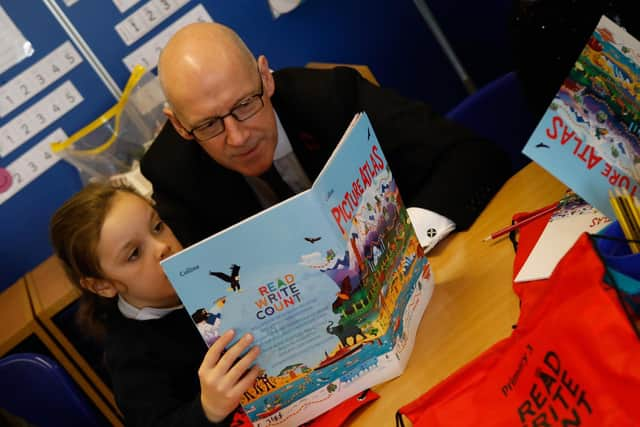This SNP government is guilty of dereliction of duty - Brian Monteith
The First Minister said famously “judge me on my record on education”. It was, like so many of her over-confident throw-away lines that betray an imperious arrogance, a rash misjudgment.
For if the Scottish electorate were to take her at her word not only should she fail her exam, if she had any honour she would not even turn up for it. It is time for the opposition parties to park the issue of a second independence referendum and move on to the dire state of Scotland’s public services.
Advertisement
Hide AdAdvertisement
Hide AdThey need to recognise the Prime Minister sees no possibility of a second independence referendum during his term of government and therefore agree they too are not in the business of playing up to the SNP’s game of constant distraction with the constitutional issue.


'Deteriorating public services'
Boris Johnson’s stoicism against the constant bleating of the First Minister provides a political breathing space for Jackson Carlaw, Richard Leonard and Willie Rennie to raise the issues of real and genuine concern about deteriorating public services.
The SNP government is guilty of dereliction of duty at so many levels, but chief amongst the carnage is its neglect as caretaker of our childrens’ education. If the opposition parties do not raise repeatedly the copious examples of SNP education failure at every opportunity then they too must be judged as failing to make the grade.
Once we were proud to claim our local schools were superior to those elsewhere in the UK (and especially in England) but that claim can no longer be made. Having come from behind in international league rankings, England’s local schools have vaulted past Scottish attainment on many measures. A new Scottish government report, released last week, revealed devastating drops in exam passes, with falls in English and Maths and many other subjects. The overall fall in the pass rate was 10 per cent – and that is before considering the issue of grade inflation.
So strapped for cash are our local councils who deliver education services – facing huge cuts despite additional funding being made available by the Treasury in London – that free music tuition is set to all but disappear. Instead of ensuring access for all the SNP government is presiding over and complicit in making music tuition available only to those who can afford to pay for it.
'Exacerbating elitism'
This pursuit of building up division in Scottish society by exacerbating elitism is being further encouraged by Nicola Sturgeon’s government making independent schooling face higher taxes and thus even more expensive.
By definition it must become more exclusive and elite. While standards in local schools fall into relative decline so the alternative of private schooling becomes further out of reach. No-one is served well by the growing gulf.
Yet more pressure is then placed on parents finding a home in the catchment area of a good-performing school – opening up further division in Scotland between those who have the power to buy schooling with their house purchase. And if their children happen to do well and achieve a string of A-passes in their exams, then thanks to the SNP’s restriction of places for Scottish students in Scottish universities (because the tuition is provided “free”) they may yet be told they cannot gain admittance and must go outside Scotland. Meanwhile the SNP government funds students from EU member states free of charge even though we have left.
Advertisement
Hide AdAdvertisement
Hide AdOnce the Scottish people’s most distinguishing advantage, not just within the UK but in the world, our education system is ours and ours alone. It has never been the responsibility of Westminster or Whitehall, instead it was first the shining glory of our Presbyterian kirk, before being managed by local school boards and then our local authorities. Legislation and finance determining how our schools were run were solely a decision for the Scottish Office, with deference (if not reverence) shown to our independence by MPs from the rest of the UK, knowing that our standards were guarded jealously by our dominies, local ministers and politicians.
Following devolution the Scottish Parliament and its Executive inherited the responsibility for education and then chose to abolish much of the progress that had been made by Scottish Office Ministers.
If ever there is an example of a public service that is beyond doubt a Scottish institution it is not health or housing or transport – it is our education. Whatever one might think of devolution’s record in education it is owned by Scotland, not the UK.
Be it deciding to give it a higher priority for funding, or award its teachers greater incentives and rewards, or bring forward urgent reforms in its management or curriculum all of these decisions are solely for the 129 politicians at Holyrood.